Question And Answer
Publications
Articles, publications, books, tools and multimedia features from the U.S. Institute of Peace provide the latest news, analysis, research findings, practitioner guides and reports, all related to the conflict zones and issues that are at the center of the Institute’s work to prevent and reduce violent conflict.
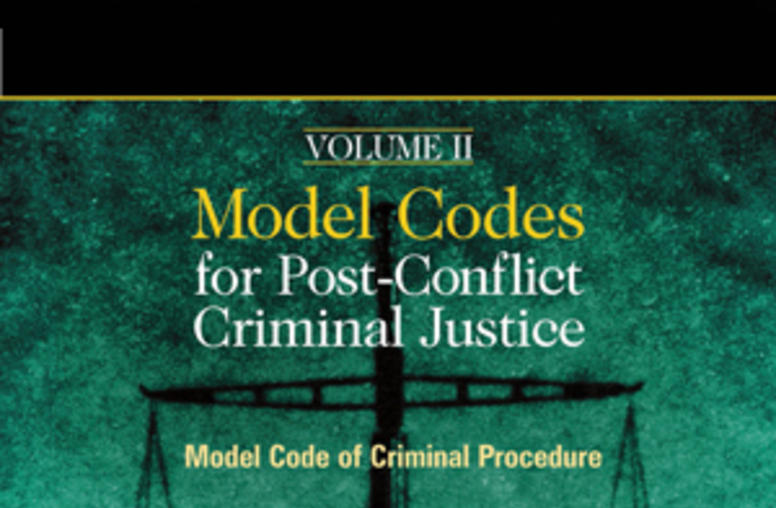
Model Codes for Post-Conflict Criminal Justice
Working in cooperation with the Irish Centre for Human Rights (ICHR), the Office of the UN High Commissioner for Human Rights (OHCHR), and the UN Office on Drugs and Crime (UNODC), USIP launched the Model Codes for Post-Conflict Criminal Justice Project in 2001. The model codes are being published in a three volume series. This book below, the second volume, was published in Summer 2008 and contains the Model Code of Criminal Procedure that details the rules and procedures that govern the inv...
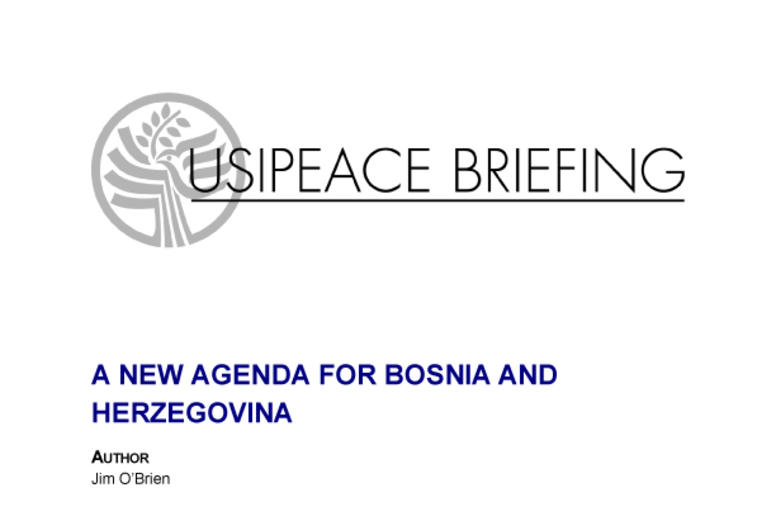
A New Agenda for Bosnia and Herzegovina
As concerns grow about Bosnia's post-war recovery, USIP presents its fourth report on recent developments in Bosnia and Herzegovina and various options the U.S. government, Europe and Bosnia could pursue to prevent a return to violence there. In his paper, author Jim O'Brien, who served as the presidential envoy for the Balkans in the 1990s, cautions against taking a big initiative in Bosnia to head off a future crisis, but rather advocates taking on many, smaller battles that will ultimately...
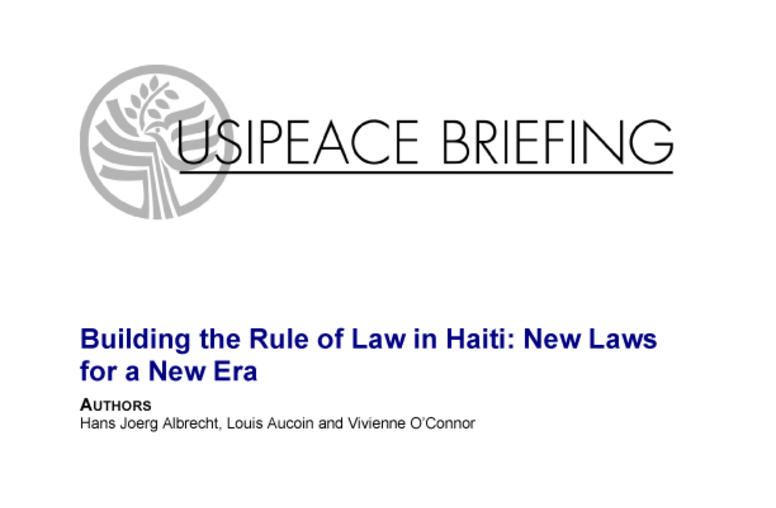
Building the Rule of Law in Haiti: New Laws for a New Era
A new USIP report on Haiti's criminal laws examines the shortcomings of the impoverished country's criminal code – and finds promising opportunities to modernize and reform the laws. Despite Haiti's numerous challenges, the report concludes that new laws in Haiti will usher in a new era where the criminal justice system serves all people of Haiti, including the poor, vulnerable and marginalized, and upon which respect for the law and legitimacy of a stronger judicial system overall can be bui...
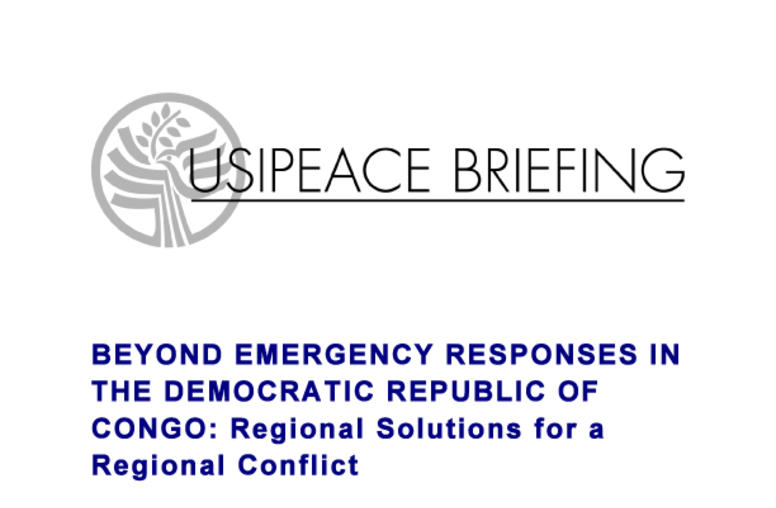
Beyond Emergency Responses in the Democratic Republic of Congo
In the Democratic Republic of Congo, the deadly conflict has claimed the lives of millions and appears to have no end. A new USIP report provides context to this protracted war, assesses current approaches and presents new options on how to resolve it.
2008-2009 Winning Essay - National First Place Winner
National First Place Winner Sophia Sanchez Ladue Horton Watkins High School St. Louis, Missouri Coordinator: Megan McCorkle
2008-2009 Winning Essay - National Third Place Winner
National Third Place Winner Timothy “Sean” Ray Mississippi School for Mathematics and Science Columbus, Mississippi Coordinator: Donna Ray
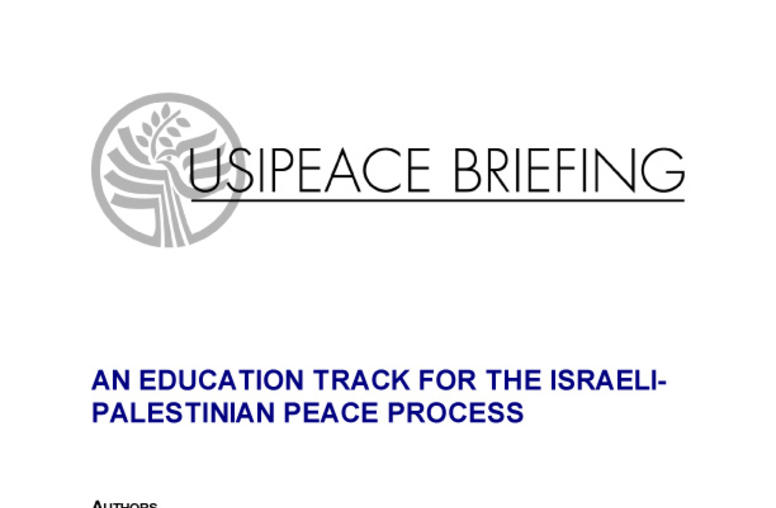
An Education Track for the Israeli-Palestinian Peace Process
Education plays a critical role in preparing communities for change and has made important contributions to post-conflict reconciliation in numerous war-torn societies, yet education issues have largely been excluded from past efforts to resolve the Israeli-Palestinian conflict. A new USIP report argues why an education track should be included in the negotiations phase and in the text of an agreement itself, and puts forward practical recommendations on how Israelis and Palestinians – and t...
Praise for Negotiating with Iran
“Negotiating with Iran should be read not just by foreign service officials but also by academics and general readers interested in U.S.-Iran relations.” —Ervand Abrahamian, Baruch College, CUNY “This is an excellent book and an important contribution to what is rapidly becoming the central issue in American foreign policy. Limbert draws on years of professional and personal experience to explore and explain the problematic nature of Iran-U.S. relations and to offer coherent and constructi...
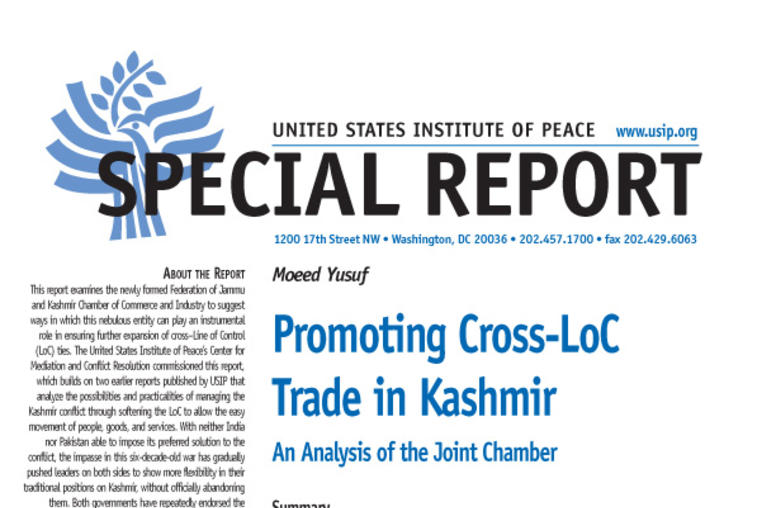
Promoting Cross-LoC Trade in Kashmir
The recent formation of the Federation of Jammu and Kashmir Chamber of Commerce and Industry has the potential to play a promising role in future efforts to reduce tensions between India and Pakistan over the disputed territory of Kashmir. In the special report, "Promoting Cross-Line of Control Trade in Kashmir," author Moeed Yusuf provides in-depth analysis of the fledgling entity and a concrete illustration of the opportunities and challenges of the way forward.
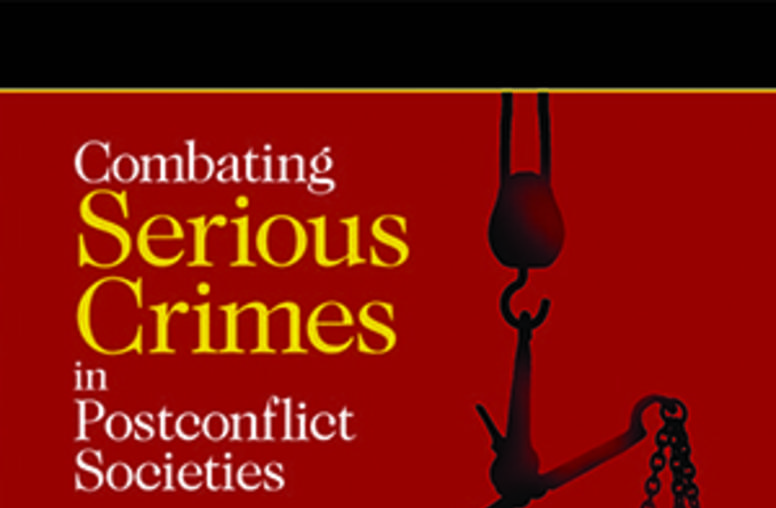
Combating Serious Crimes in Postconflict Societies - Dari Edition
This path-breaking volume presents broad guidelines and specific prescriptions for combating serious crime in societies emerging from conflict.